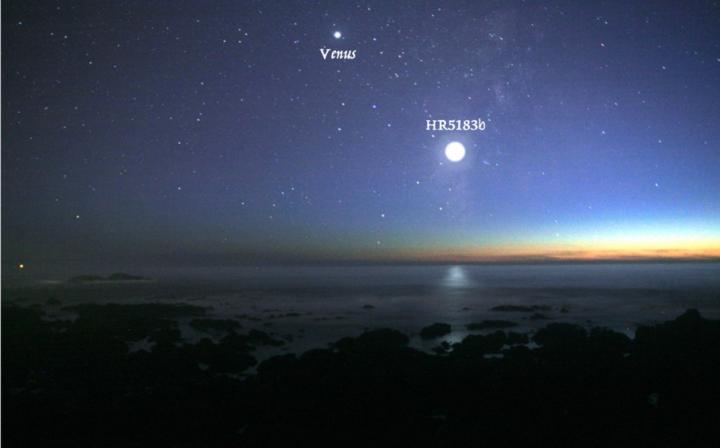Could an Earth-like planet also survive in an eccentric solar system?
HR5183 is a yellow dwarf star, not very different from our own Sun and located about 103 light-years from Earth. After more than 20 years of observation, astronomers finally found a planet, of about three times Jupiter’s mass, orbiting the star this past summer. Why did it take so long? The planet, HR5183 b, needs 75 years to complete one orbit around its star. Therefore, the period at which it affects the light curve of its star is also correspondingly long.
But what surprised the astronomers even more was the planet’s unusual orbit. HR5183 b comes about as close to its star as Jupiter’s distance to the Sun and then swings out to a distance far beyond that of Neptune’s orbit. Such an eccentric orbit had previously been observed only very rarely.
Other planets hadn’t been found in the system before. Researchers also wouldn’t necessarily expect to find any others, either, because they would assume, given enough time, such a large planet with such an eccentric orbit would sweep any siblings out of the nest. With a mass three times that of Jupiter’s, HR5183 b would move through its system like a wrecking ball.
But is that assumption correct? Only partially, astronomers have now shown in a new study. Researchers placed a second, Earth-sized planet in the system in a simulation and then sped up the clock. In most cases, HR5183 b did in fact fling the second Earth into deep space. But not always – and particularly not when the second Earth had an orbit in the star’s habitable zone (like where our own Earth is located). So, an Earth-like planet at an optimal distance to its star could still survive in such an eccentric system.
The researchers also calculated how bright the planet would appear in the skies of a (fictitious) rocky planet – 15 times brighter than Venus in Earth’s skies.
